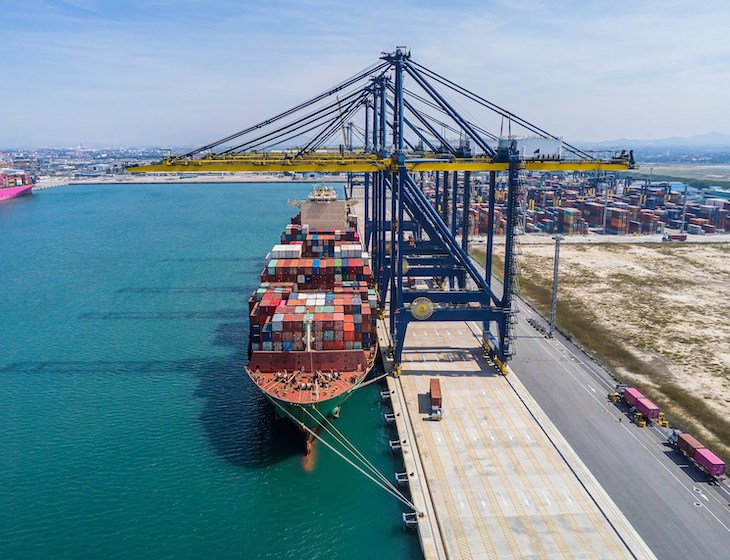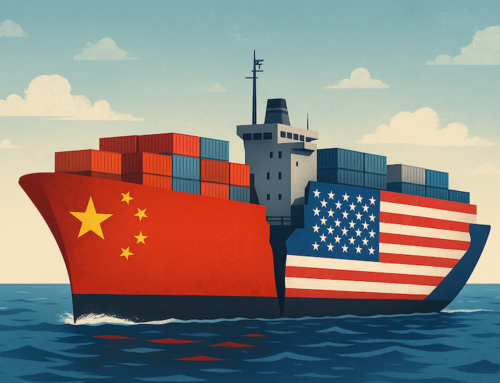Carriers continue to manage capacity through blank sailings throughout April, while the impact of the Myanmar earthquake on shipments from the region has been minimal. Attention is now turning to the newly announced US tariffs, which are expected to affect global shipping in the months ahead.
Sea Freight Services: Capacity Management Measures Continue Throughout April
Although demand remains broadly in line with seasonal expectations, carriers are continuing to manage capacity through blank sailings on Asia–Europe routes, with these measures now extending throughout April. As a result, last-minute changes to sailing schedules are still affecting some planned shipments.
The recently introduced alliance service structures are holding steady, with scheduled departures progressing as planned. Initial signs suggest that vessel arrivals are also performing well, though we’ll review full performance data at the end of the month to evaluate overall reliability.
Myanmar Earthquake: Minor Disruption to Port Operations
Following last week’s earthquake, port operations in Myanmar have experienced slight disruption. Cranes at Yangon Port are currently undergoing inspection, resulting in intermittent delays to feeder services. Factory operations remain largely unaffected, and the overall impact on supply chains has been limited.
US Tariffs: Proposals Raise Questions for Global Shipping
President Trump’s newly announced tariff increases are expected to impact global shipping patterns and container rates, with potentially significant implications for international sea freight.
Announced on 2 April, the proposals include a 10% baseline tariff on all US imports, with higher tariffs targeting approximately 60 countries deemed to have unfair trade practices (full list here). A 25% tariff on vehicles and vehicle parts is also set to go ahead.
The sea freight industry is bracing for disruption, which analysts say will bear the brunt of the impact as most goods are expected to face increased import tariffs. If implemented, these measures could affect up to 80% of US imports, with key trading partners such as China, South Korea, Japan, and the EU already signalling possible retaliation.
There is considerable uncertainty over how those countries most affected will respond or seek to mitigate the full impact of the measures announced. Disruption to volumes and shifts in global trade flows are likely as carriers adapt to new cost structures and regulatory uncertainty.
We will continue to monitor developments closely and keep customers informed over the coming weeks.
If you have any questions or concerns regarding your shipment, please don’t hesitate to contact our Customer Service Team at 01376 533039 or email [email protected].








